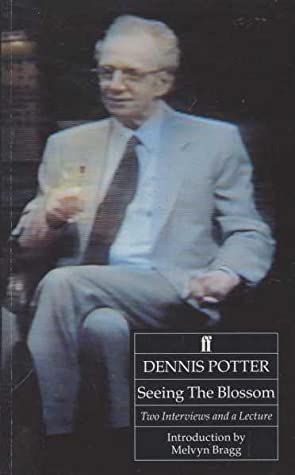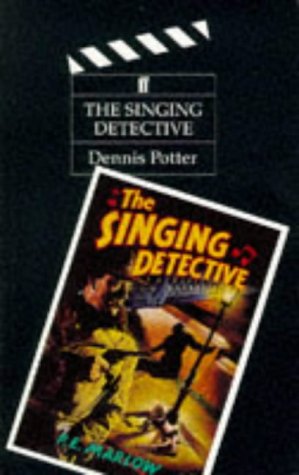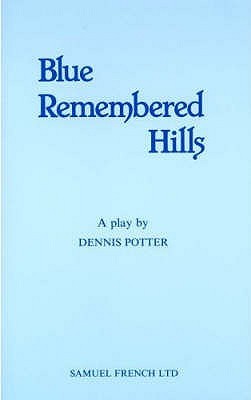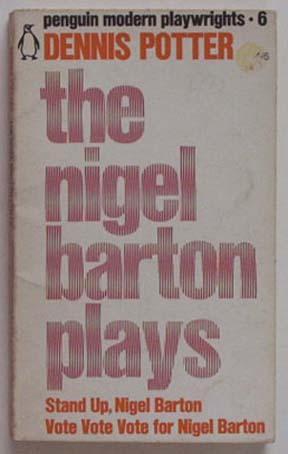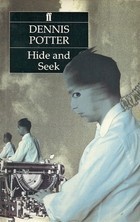Dennis Potter
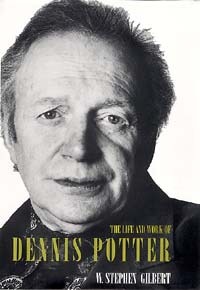
Dennis Christopher George Potter (17 May 1935 – 7 June 1994) was an English dramatist, best known for The Singing Detective (1986). His widely acclaimed television dramas mixed fantasy and reality, the personal and the social. He was particularly fond of using themes and images from popular culture. Such was his reputation that he convinced BBC 2 and Channel 4 to co-operate in screening his final two works, written in the months he was aware of his impending death.
Potter's career as a television playwright began with The Confidence Course, an exposé of the Dale Carnegie Institute that drew threats of litigation. Although Potter effectively disowned the play, it is notable for its use of non-naturalistic dramatic devices (in this case breaking the fourth wall) which would become hallmarks of Potter's subsequent work. Broadcast as part of the BBC's The Wednesday Play strand in 1965, The Confidence Course proved successful and Potter was invited for further contributions. His next play, Alice (1965), was a controversial drama chronicling the relationship between Lewis Carroll and his muse Alice Liddell. Potter's most celebrated works from this period are the semi-autobiographical plays Stand Up, Nigel Barton! and Vote, Vote, Vote for Nigel Barton; the former the tale of a miner's son going to Oxford University where he finds himself torn between two worlds, the latter featuring the same character standing as a Labour candidate — his disillusionment with the compromises of electoral politics is based on Potter's own experience. Both plays received praise from critics' circles but aroused considerable tension at the BBC for their potentially incendiary critique of party politics.
Potter's Son of Man (The Wednesday Play, 1969), starring the Irish actor Colin Blakely, gave an alternative view of the last days of Jesus, and led to Potter being accused of blasphemy. The same year, Potter contributed Moonlight on the Highway to ITV's Saturday Night Theatre strand. The play centred around a young man who attempts to blot out memories of the sexual abuse he suffered as child in his obsession with the music of Al Bowlly. As well as being an intensely personal play for Potter, it is notable for being his first foray in the use of popular music to heighten the dramatic tension in his work.
Potter continued to make news as well as winning critical acclaim for drama serials with Pennies From Heaven (1978), which featured Bob Hoskins as a sheet music salesman and was Hoskins's first performance to receive wide attention. It demonstrated the dramatic possibilities old recordings of popular songs. Blue Remembered Hills was first shown on the BBC on 30 January 1979; it returned to the British small screen at Christmas 2004, and again in the summer of 2005, showcased as part of the winning decade (1970s) having been voted by BBC Four viewers as the golden era of British television. The adult actors playing the roles of children were Helen Mirren, Janine Duvitski, Michael Elphick, Colin Jeavons, Colin Welland, John Bird, and Robin Ellis. It was directed by Brian Gibson. The moralistic theme was "the child is father of the man". Potter had used the dramatic device of adult actors playing children before, for example in Stand Up, Nigel Barton.
The Singing Detective (1986), featuring Michael Gambon, used the dramatist's own battle with the skin disease psoriasis, for him an often debilitating condition, as a means to merge the lead character's imagination with his perception of reality.
His final two serials were Karaoke and Cold Lazarus (two related stories, both starring Albert Finney as the same principal character, one set in the present and the other in the far future).
Potter's work is distinctive for its use of non-naturalistic devices. The 'lip-sync' technique he developed for his "serials with songs" (Pennies from Heaven; The Singing Detective and Lipstick on Your Collar), extensive use of flashback and nonlinear plot
